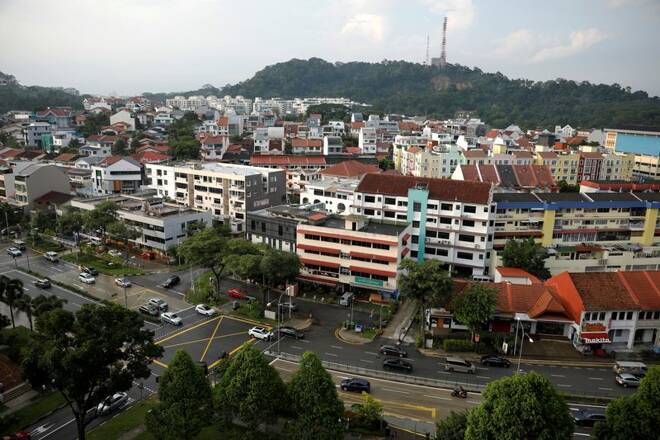Advertisement
Advertisement
Singapore tightens housing loan limits as rates rise
By:
By Shubham Kalia (Reuters) -Singapore unveiled a package of measures for the property market, including tightening the maximum loan quantum limits for housing loans in response to a rise in interest rates, and new steps to moderate demand.
By Shubham Kalia, Chen Lin and Xinghui Kok
SINGAPORE (Reuters) – Singapore has unveiled a package of measures for the property market, including tightening lending limits for housing loans in response to a rise in interest rates, as well as new steps to moderate demand.
The move would ensure “prudent borrowing” and “avoid future difficulties” in servicing home loans, said Singapore’s central bank, the Ministry of National Development and the Housing & Development Board in a joint statement late on Thursday.
The measures – including lowering the amount of government loans available to buy public housing by 5 percentage points – were announced late on Thursday and came into effect from Friday.
The interest rate floor used in bank loan calculations has also been raised, reducing the amount of lending a person can obtain in relation to their income level when buying from either the public or private property market.
OCBC economist Selena Ling said the steps should “dampen any exuberance and slow the pace of price appreciation”.
The measures would have less impact on foreign investors as they are more attuned to the global interest rate situation or less dependent on loans, Ling said.
The new measures are mainly targeted at the “overheated” resale public housing market, said Christine Sun, senior vice president of research & analytics at OrangeTee & Tie.
Analysts expect the measures to slow property price growth in the fourth quarter.
Reuters had earlier reported record numbers of Singapore public housing apartments were sold at over S$1 million ($697,739).
The government implemented a broad package of cooling measures last December, but there was still a “clear upward momentum” in public housing prices which increased by more than 5% since then to the end of the second quarter this year, the authorities said in the statement.
Meanwhile, private home prices also rose 3.5% in the second quarter, five times the 0.7% increase in the previous quarter.
The higher prices of apartments in Singapore, where real estate is viewed as a safe-harbour investment, have been exacerbated by COVID-19-related construction delays creating a shortage of new units.
Authorities said in Thursday’s statement that interest rates had risen significantly and are likely to go up further.
“We urge households to exercise prudence before taking up any new loans, and be sure of their debt-servicing ability before making long-term financial commitments.”
Share prices of major developers in Singapore like City Developments, GuocoLand and Frasers Property, fell more than 1.5% on Friday following the new measures, compared with a 0.4% drop in the broader market.
Many central banks across the world have increased interest rates to fight inflation. In Singapore, bank mortgage interest rates are determined by commercial banks. Three local banks have in recent weeks temporarily removed fixed-rate home loans.
Singapore’s monthly inflation rate has remained elevated in recent months, and economists widely expect the central bank to tighten policy at its scheduled review next month.
($1 = 1.4332 Singapore dollars)
(Reporting by Shubham Kalia in Bengaluru, and Chen Lin and Xinghui Kok in Singapore, additional reporting by Tom Westbrook; Editing by Leslie Adler, Christopher Cushing, Ed Davies)
About the Author
Reuterscontributor
Reuters, the news and media division of Thomson Reuters, is the world’s largest international multimedia news provider reaching more than one billion people every day. Reuters provides trusted business, financial, national, and international news to professionals via Thomson Reuters desktops, the world's media organizations, and directly to consumers at Reuters.com and via Reuters TV. Learn more about Thomson Reuters products:
Advertisement
